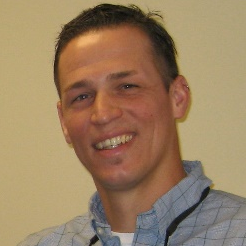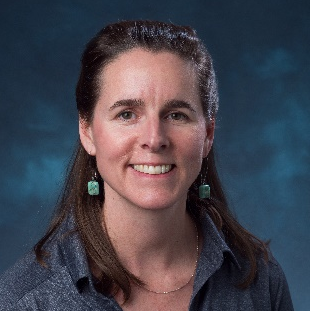Tuesday, April 14, 2020 | 11:00 a.m. to Noon MT
The Quiet Majority: Understanding Communities to Make Mitigation Work
Webinar Description:
This webinar will introduce the Wildfire Research (WiRē) model, a long running, practitioner-research collaboration that increases the relevance and efficacy of wildfire mitigation programs. The WiRē team concentrates on the fact that there is no one-size-fits-all solution to reducing wildfire risk. As the National Cohesive Wildland Fire Management Strategy points out, solutions must be tailored to landscapes and communities. The WiRē Team’s unique approach unites research and practice, collecting and using community-specific data to tailor programs that support local solutions and allow communities to get ahead of wildfire issues. The webinar will demonstrate how pairing wildfire risk assessments and household surveys have led to increased engagement and risk mitigation.
Speakers:
Chris Barth
Fire Mitigation Specialist, Bureau of Land Management
Hannah Brenkert-Smith
Assistant Research Professor, University of Colorado Boulder
Natural Hazards Center Overview Slides
Webinar Questions
Webinar Slides
Resources:
Where You Stand Depends on Where You Sit: Qualitative Inquiry into Notions of Fire Adaptation.

Chris Barth is a fire mitigation specialist with the Bureau of Land Management. Barth works with the public, internal and external partners, elected officials, and the media to communicate fire management strategies and disaster response, planning, and fire adaptation concepts. He has received several national awards for his work to reduce community wildfire risk. As a member of the incident management team command staff, he works also works with communities during wildfires and other disasters. Barth is a founding member and subject matter expert for the Wildfire Research (WiRē) Team with research interests in homeowners’ attitudes toward wildfire mitigation and public perception of wildfire risk. He holds bachelor’s degrees in biology and environmental conservation from the University of Colorado, as well as a master’s degree in environmental education from the University of Montana.

Hannah Brenkert-Smith is an environmental sociologist whose work examines social and environmental interactions in the face of environmental change, particularly in the American West. In the past ten years, Brenkert-Smith’s work has focused primarily on household and community response to wildfire risk. Her current projects include exploring emergent understanding of fire adaptation across stakeholders; examining conflicting understandings of pathways to forest resilience; and identifying social determinants that shape expectations and acceptability of wildfire and fuel management. Brenkert-Smith earned her PhD in sociology from the University of Colorado Boulder. She was an Environmental Protection Agency Science to Achieve Results (STAR) fellow, a science and technology policy fellow at the National Academy of Sciences, and a postdoctoral fellow in the Climate Science and Applications Program at the National Center for Atmospheric Research.